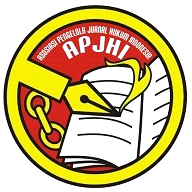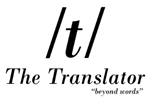Human Rights and Justice: Marine Waste Management for Environmental Protection and Ecosystem Sustainability in Indonesia
Abstract
This article examines marine waste management in Indonesia, focusing on its impact on human rights, justice, and environmental sustainability. The accumulation of waste, particularly plastic, in Indonesia's vast maritime territory, has significant implications for human health, livelihoods, and the environment. As the country relies heavily on marine resources for food security and economic activity, pollution threatens the well-being of coastal communities, often exacerbating inequality and infringing on the right to a healthy environment. The research reveals that plastic waste is the most prevalent type found in Indonesian waters, highlighting the urgency of stronger regulatory enforcement. While Indonesia has regulations, such as Presidential Regulation No. 83 of 2018 concerning Marine Waste Management, their implementation remains insufficient. The study stresses the need for more robust policies addressing upstream and downstream waste management while ensuring accountability and equitable resource access. Effective enforcement requires collaboration between government agencies, private entities, and civil society, ensuring that vulnerable communities, especially those dependent on marine resources, are protected. Strengthening these efforts is crucial for the protection of marine ecosystems and advancing human rights and justice by safeguarding the right to a clean and healthy environment for all.
Keywords
Full Text:
PDFReferences
Agrofarm. "Semester I 2022, Realisasi Investasi Bidang Kelautan dan Perikanan Tembus Rp4,04 T" July 29, 2022. https://www.agrofarm.co.id/2022/07/semester-i-2022-realisasi-investasi-bidang-kelautan-dan-perikanan-tembus-rp404-t/.
Akbar, Muh, and Aqila Maghfira. "Pengaruh Sampah Plastik Dalam Pencemaran Air Laut Di Kota Makassar." SENSISTEK: Riset Sains dan Teknologi Kelautan 6, no. 1 (May 29, 2023): 1-6. https://doi.org/10.20956/sensistek.vi.24234.
Annur, Cindy Mutia. "Penduduk Indonesia Tembus 278 Juta Jiwa Hingga Pertengahan 2023" July 13, 2023. https://databoks.katadata.co.id/datapublish/2023/07/13/penduduk-indonesia-tembus-278-juta-jiwa-hingga-pertengahan-2023.
Chotimah, Hidayat Chusnul, Muhammad Ridha Iswardhana, and Lucitania Rizky. "Model Collaborative Governance Dalam Pengelolaan Sampah Plastik Laut Guna Mewujudkan Ketahanan Maritim Di Indonesia." Jurnal Ketahanan Nasional 27, no. 3 (January 1, 2022): 348-76. https://doi.org/10.22146/jkn.69661.
Cordova, Muhammad Reza. "Pencemaran Plastik Di Laut." OSEANA 42, no. 3 (2017): 21-30.
Direktorat Jenderal Pengendalian Pencemaran dan Kerusakan Lingkungan. "Pemantauan Sampah Laut Indonesia Tahun 2017" n.d. https://ppkl.menlhk.go.id/website/filebox/274/180703160900REKAP%20SAMPAH%20LAUT%20INDONESIA%202017.pdf.
Direktorat Pendayagunaan Pesisir dan Pulau-Pulau Kecil (P4K). "Sampah Laut (Marine Debris)." Accessed July 15, 2023. https://kkp.go.id/djprl/p4k/page/1994-sampah-laut-marine-debris.
Dobiki, Joflius. "Analisis Ketersedian Prasarana Persampahan Di Pulau Kumo Dan Pulau Kakara Di Kabupaten Halmahera Utara." SPASIAL 5, no. 2 (2018): 220-28. https://doi.org/10.35793/sp.v5i2.20803.
Dwiyanti Suryono, Devi. "Sampah Plastik Di Perairan Pesisir Dan Laut : Implikasi Kepada Ekosistem Pesisir Dki Jakarta." Jurnal Riset Jakarta 12, no. 1 (September 30, 2019): 17-23. https://doi.org/10.37439/jurnaldrd.v12i1.2.
Fadilah, Edta Muhammad, Windy Dermawan, and Arfin Sudirman. "Kompleks Keamanan Lingkungan Regional Kawasan Asean Dalam Menghadapi Ancaman Polusi Sampah Laut." Jurnal Inovasi Penelitian 3, no. 3 (July 29, 2022): 5575-88. https://doi.org/10.47492/jip.v3i3.1917.
Fleming, L. E., N. McDonough, M. Austen, L. Mee, M. Moore, P. Hess, M. H. Depledge, et al. "Oceans and Human Health: A Rising Tide of Challenges and Opportunities for Europe." Marine Environmental Research 99 (August 1, 2014): 16-19. https://doi.org/10.1016/j.marenvres.2014.05.010.
Food and Agriculture Organization of the United Nations. Code of Conduct for Responsible Fisheries. Rome: Food and Agriculture Organization of the United Nations, 1995.
Gregory, Murray R. "Environmental Implications of Plastic Debris in Marine Settings"”Entanglement, Ingestion, Smothering, Hangers-on, Hitch-Hiking and Alien Invasions." Philosophical Transactions of the Royal Society B: Biological Sciences 364, no. 1526 (July 27, 2009): 2013-25. https://doi.org/10.1098/rstb.2008.0265.
Hermawan, Sapto, and Wida Astuti. "Penggunaan Penta Helix Model Sebagai Upaya Integratif Memerangi Sampah Plastik Di Laut Indonesia." Bina Hukum Lingkungan 5, no. 2 (May 17, 2021): 237-61. https://doi.org/10.24970/bhl.v5i2.164.
HR, Ridwan. Hukum Administrasi Negara. Revisi, Cet. 13. Jakarta: Rajawali Pers, 2018.
Hutomo, Dimas. "Sanksi Membuang Limbah ke Lingkungan Laut Tanpa Izin - Klinik Hukumonline." hukumonline.com, December 20, 2018. https://www.hukumonline.com/klinik/a/sanksi-membuang-limbah-ke-lingkungan-laut-tanpa-izin-lt5bc2bcf68f29f/.
Indonesiabaik.id. "Indonesia Darurat Sampah Plastik Di Laut" March 2023. https://indonesiabaik.id/infografis/indonesia-darurat-sampah-plastik-laut.
Indriana, Ina, and Yeni Januarsi. "Manajemen Sampah Rumah Tangga Sebagai Alternatif Pemberdayaan Ekonomi Para Anggota PWRI Kota Cilegon." Mopolayio : Jurnal Pengabdian Ekonomi 2, no. 1 (November 24, 2022): 29-32.
Jing, Zhen, and Sutikno Sutikno. "Legal Issues on Indonesian Marine Plastic Debris Pollution." Indonesia Law Review 10, no. 1 (April 30, 2020): 87-110. https://doi.org/10.15742/ilrev.v10n1.592.
Johan, Yar, Person Pesona Renta, Ali Muqsit, Dewi Purnama, Leni Maryani, Pinsi Hiriman, Fahri Rizky, Anggini Fuji Astuti, and Trisela Yunisti. "Analisis Sampah Laut (Marine Debris) Di Pantai Kualo Kota Bengkulu." JURNAL ENGGANO 5, no. 2 (September 30, 2020): 273-89. https://doi.org/10.31186/jenggano.5.2.273-289.
Kurniawan, Badrudin. "Pengawasan Pengelolaan Limbah Bahan Berbahaya Dan Beracun (B3) Di Indonesia Dan Tantangannya." Dinamika Governance : Jurnal Ilmu Administrasi Negara 9, no. 1 (April 26, 2019): 39-49. https://doi.org/10.33005/jdg.v9i1.1424.
Medd, Laura, and Putu Ade Harriestha. "Pertanggungjawaban Pidana Terhadap Pelaku Tindak Pidana Dumping Limbah (B3) Tanpa Izin." Kertha Wicara : Journal Ilmu Hukum 9, no. 11 (October 12, 2020): 1-10.
Nurul Najmi, Endah Anisa Rahma, Mai Suriani, Rita Hartati, Friyuanita Lubis, and Giovanni Oktavinanda. "Sosialisasi Bahaya Sampah Plastik Terhadap Ekosistem Laut Bagi Remaja Desa Ujong Pulau Rayeuk, Aceh Selatan." J-ABDI: Jurnal Pengabdian Kepada Masyarakat 2, no. 2 (June 28, 2022): 3855-62. https://doi.org/10.53625/jabdi.v2i2.2628.
Poluan, Tirza I. A., Joudy R. R. Sangari, Ferdinand F. Tilaar, Lawrence J. L. Lumingas, Wilmy E. Pelle, and Ridwan Lasabuda. "Identifikasi Jenis Sampah Laut Dengan Fokus Kajian Indeks Kebersihan Pantai Di Pantai Karang Ria Tuminting." Jurnal Ilmiah PLATAX 11, no. 1 (2023): 95-104.
Prabawa, Fy, Ns Adi, Ws Pranowo, Ss Sukoraharjo, Bg Gautama, and Ir Suhelmi. "Strategy on Marine Debris Reduction in Indonesia: A Review and Recommendation." IOP Conference Series: Earth and Environmental Science 925, no. 1 (November 1, 2021): 012027. https://doi.org/10.1088/1755-1315/925/1/012027.
Puspitasari, Dinarjati Eka. "Dampak Pencemaran Air Terhadap Kesehatan Lingkungan Dalam Perspektif Hukum Lingkungan (Studi Kasus Sungai Code Di Kelurahan Wirogunan Kecamatan Mergangsan Dan Kelurahan Prawirodirjan Kecamatan Gondomanan Yogyakarta)." Mimbar Hukum - Fakultas Hukum Universitas Gadjah Mada 21, no. 1 (February 23, 2012): 23. https://doi.org/10.22146/jmh.16254.
Republic of Indonesia. Law of the Republic of Indonesia Number 32 of 2009 concerning Environmental Protection and Management (2009).
"”"”"”. Republic of Indonesia Government Regulation Number 101 of 2014 concerning Management of Hazardous and Toxic Waste. (2014).
Tim Koordinasi Nasional Penanganan Sampah Laut. "Sampah Laut." Tim Koordinasi Nasional Penanganan Sampah Laut (blog). Accessed October 15, 2023. https://sampahlaut.id/sampah-laut/.
Tristy, Marsatana Tartila, and Aminah Aminah. "Efektivitas Kebijakan Pengurangan Sampah Plastik Bagi Kelestarian Lingkungan Hidup Di Era Globalisasi." Lex Librum : Jurnal Ilmu Hukum 7, no. 1 (November 25, 2020): 43-55. https://doi.org/10.46839/lljih.v0i0.224.
United Nations. Convention on the Prevention of Marine Pollution by Dumping of Wastes and Other Matter (London Convention) (1972).
"”"”"”. London Protocol 1996 (1996).
"”"”"”. United Nations Convention on the Law of the Sea (UNCLOS) (1982).
United Nations Development Programme. "Goal 14: Life Below Water." UNDP. Accessed July 15, 2023. https://www.undp.org/sustainable-development-goals/below-water.
Utama, I Made Arya, and I Ketut Suardita. "Pengaturan Tata Kepemerintahan Yang Baik Dalam Pemberian Izin Usaha Industri Untuk Mencegah Pencemaran Lingkungan Hidup Di Kota Denpasar." Kertha Negara 04, no. 02 (February 2016): 1-5.
Yuliantiningsih, Aryuni, Ade Maman Suherman, and Baginda Khalid Hidayat Jati. "Marine Plastic Pollution Handling Based on International and Indonesian Law to Support Sustainable Development Goals." UNIFIKASI : Jurnal Ilmu Hukum 10, no. 1 (April 1, 2023): 58-73. https://doi.org/10.25134/unifikasi.v10i1.7498.
DOI: https://doi.org/10.33756/jelta.v16i2.21158
Refbacks
- There are currently no refbacks.

This work is licensed under a Creative Commons Attribution-NonCommercial 4.0 International License.



.png)







_logo2.png)



